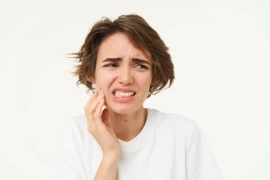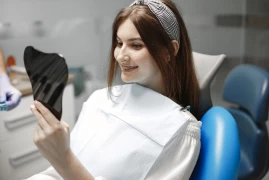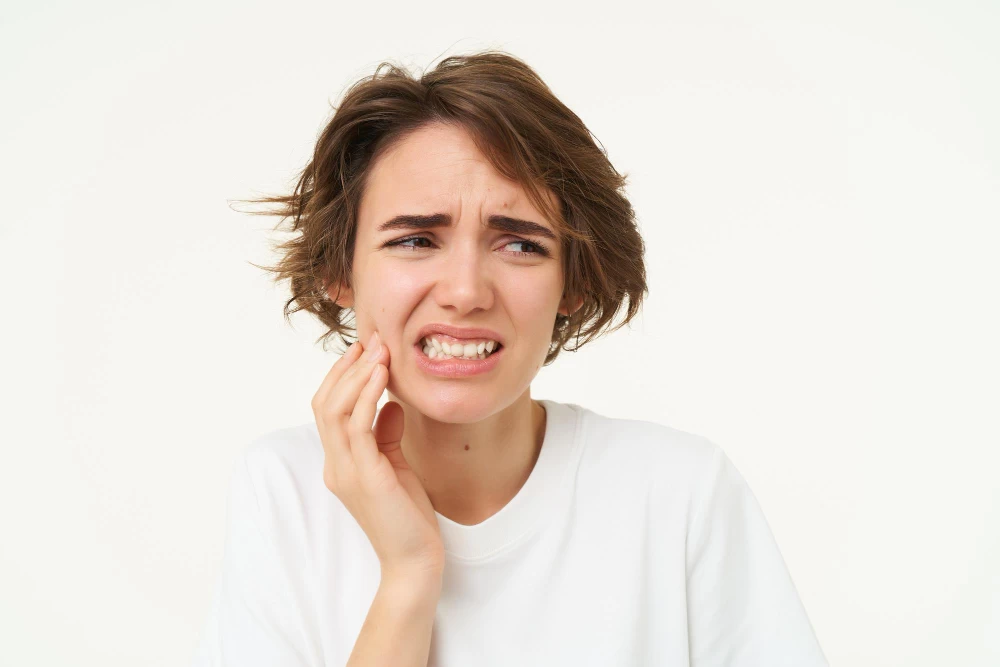
Bruxism: Observations and Recommendations on Teeth Grinding
- Bruxism: Observations and Recommendations on Teeth Grinding
- What is Teeth Grinding?
- Causes of Teeth Grinding
- Symptoms of Teeth Grinding
- Treatment Methods
- Prevention and Protection
- Conclusion
In my dental practice, a frequently encountered issue is teeth grinding, also known as bruxism. This condition negatively impacts the quality of life of my patients and can lead to serious consequences for both jaw and dental health. In this article, I aim to provide comprehensive information on the causes, symptoms, treatment methods, and preventive measures related to teeth grinding. As a dentist, it is my duty to emphasize the importance of this issue and to ensure that my patients take informed actions.
What is Teeth Grinding?
Bruxism, or teeth grinding, can be defined as the involuntary clenching or grinding of the teeth. It usually occurs during sleep, but some patients may also notice that they grind their teeth during the day. Over time, bruxism can lead to the wear and tear of teeth, damage to the enamel, and issues with the jaw joint (temporomandibular joint - TMJ).
Causes of Teeth Grinding
The exact cause of teeth grinding is not fully understood, but various factors are believed to trigger this condition.
- Stress and Anxiety: One of the most common causes of bruxism is stress. Daily pressures, work stress, and personal problems can trigger the habit of teeth grinding.
- Sleep Disorders: Sleep disorders such as sleep apnea can contribute to bruxism. Conditions like pauses in breathing during sleep can lead to involuntary movements of the jaw.
- Dental Structure and Occlusion Problems: Misalignment of the teeth or occlusion issues (malocclusion) can lead to teeth grinding. When the teeth do not meet properly, the jaw may compensate with abnormal movements.
- Genetic Factors: Individuals with a family history of bruxism are more likely to develop this condition. Genetic predisposition may play a role in the occurrence of bruxism.
- Medical Conditions and Medications: Certain neurological disorders and medications, such as antidepressants, can cause bruxism.
Symptoms of Teeth Grinding
The symptoms of bruxism can often be mistaken for other jaw or dental issues. Therefore, it is important for patients to consult a dentist if they notice the following symptoms:
- Wear and Damage to Teeth: Excessive wear, cracks, or fractures in the teeth may be observed. This is a direct result of teeth grinding.
- Jaw Pain and Sensitivity: Patients may feel pain and sensitivity in the jaw area, especially in the mornings. This is due to the constant activity of the jaw muscles.
- Headaches: Bruxism can lead to headaches, often felt in the temple area and more pronounced in the morning.
- Tinnitus: Some patients may complain of tinnitus (ringing in the ears), which can be a side effect of the pressure on the jaw joint.
- Decreased Sleep Quality: Teeth grinding can cause discomfort during sleep, leading to reduced sleep quality and a general feeling of fatigue.
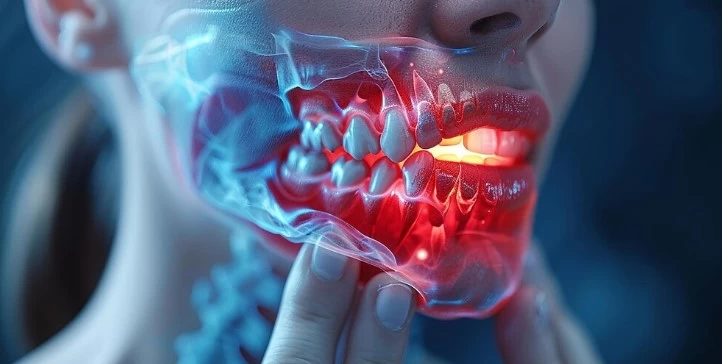
Treatment Methods
The treatment of bruxism varies depending on the cause and severity of the condition. As a dentist, I consider the individual needs of my patients when determining the most appropriate treatment plan. Here are some common treatment methods:
- Night Guard: One of the most common treatments for bruxism is the use of night guards. These custom-made devices protect the teeth from damage and help relax the jaw muscles.
- Behavioral Therapy: In cases where stress contributes to bruxism, I may refer my patients to a psychologist or therapist. Behavioral therapy can help them learn stress management techniques, thereby reducing the habit of teeth grinding.
- Medication: In some cases, muscle relaxants or anxiety medications may be used. These medications can help relax the jaw muscles and improve sleep quality.
- Dental Treatments: If bruxism is caused by occlusion problems, orthodontic treatment or restorative dental procedures may be necessary. These treatments ensure the proper alignment of the teeth and can reduce the severity of bruxism.
- Physical Therapy: Physical therapy may be applied to relax the jaw muscles and reduce pressure on the jaw joint. This treatment can include massage, hot-cold applications, and special exercises.
Prevention and Protection
The most important step in the treatment of bruxism is identifying the factors that trigger the condition and taking preventive measures. I recommend the following to my patients:
- Stress Management: Regular exercise, yoga, and meditation can be effective in reducing the risk of bruxism.
- Pay Attention to Sleep Hygiene: Quality sleep can reduce the risk of teeth grinding. It's important to pay attention to sleep hygiene, create a relaxing sleep environment, and adhere to regular sleep schedules.
- Avoid Hard Foods: Hard foods (e.g., ice, nuts) can strain the jaw muscles and increase the tendency to grind teeth. These types of foods should be avoided.
- Regular Dental Check-ups: It is important to have regular dental check-ups to detect bruxism symptoms at an early stage.
Conclusion
Teeth grinding is a problem that many people experience without being aware of it, but it can lead to serious dental and jaw issues over time. As a dentist, informing my patients about the symptoms, causes, and treatment options of bruxism is a crucial part of helping them cope with this condition. It should be remembered that early diagnosis and proper treatment are the most effective ways to prevent the long-term problems caused by bruxism. I advise my patients to consult a specialist without delay if they notice any signs of teeth grinding.
Respectfully,
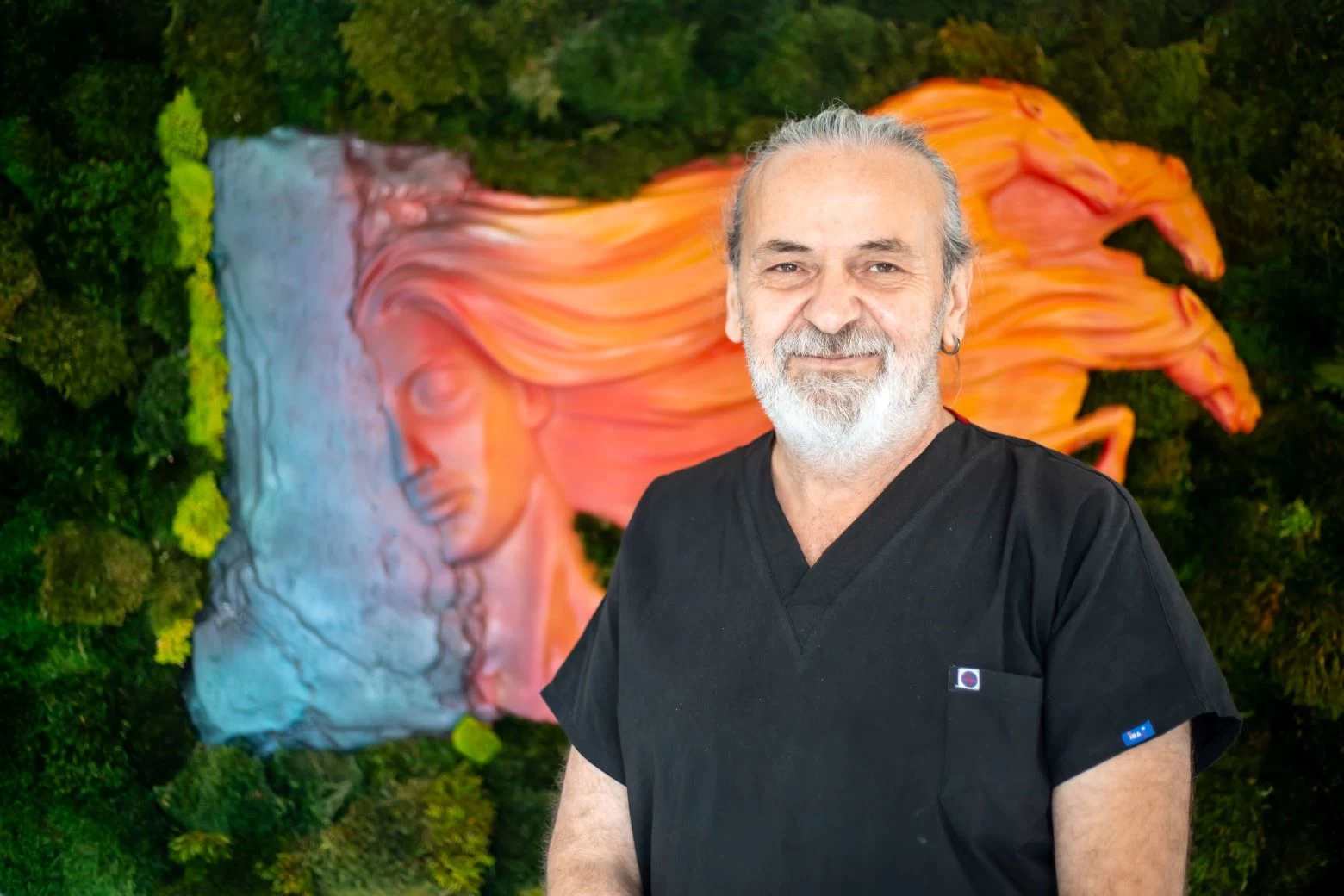
Dt. Mümtaz H. Uğur
Dentist

